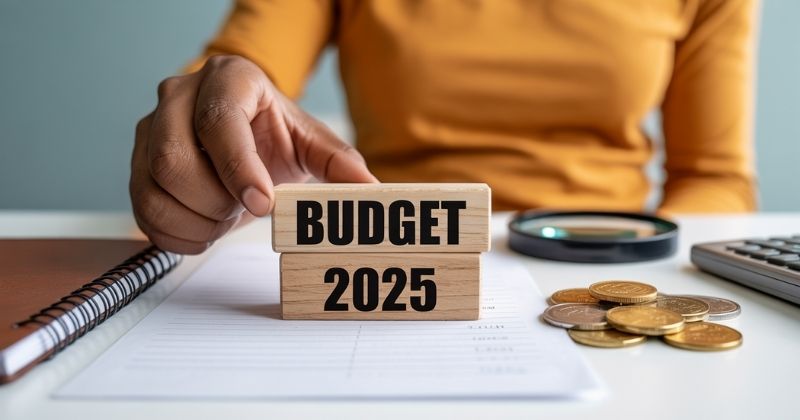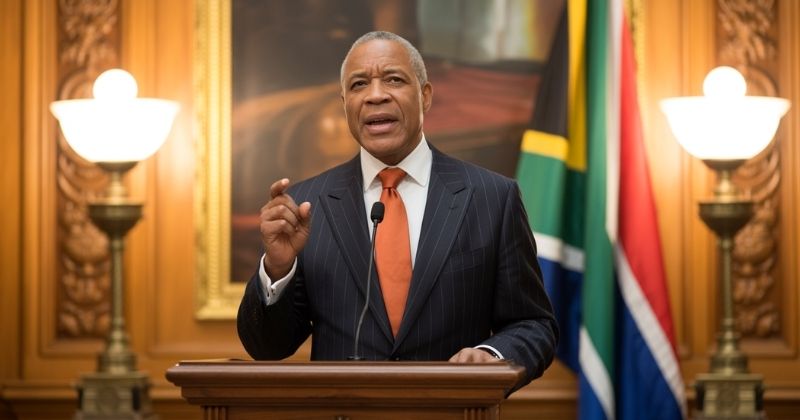
South Africa’s National Treasury has announced its intention to significantly restructure the budget-preparation process for the 2026 fiscal year. This move follows a tumultuous 2025 cycle in which the original budget proposal had to be amended twice, largely due to intense political disputes within the newly formed coalition government. The back-and-forth revisions not only delayed key service delivery programmes but also triggered widespread concern among investors, economists, and public finance watchdogs.
Key Takeaways
- Major Budget Reforms Ahead: The National Treasury plans to introduce a comprehensive overhaul of the 2026 budget process following the instability of the 2025 cycle, which saw two major revisions due to coalition disagreements.
- Structural Weaknesses Exposed: A recent Treasury review revealed deep flaws in the current process, including poor coordination, fragmented decision-making, and weak alignment between policy goals and spending priorities.
- Political Pressure Mounts: The Democratic Alliance and other coalition members are pushing for growth-focused reforms, rejecting further tax increases and calling for more efficient government spending as Parliament prepares to vote on the revised Appropriation Bill.
About Arcadia Finance
Get the loan you need without the hassle. Arcadia Finance connects you with 19 trusted lenders at no application cost, all registered with South Africa’s National Credit Regulator. Simple, secure, and tailored to your needs.
Current Budget Framework Criticised as Outdated
In an official statement released on Wednesday, the National Treasury noted that the existing budget framework no longer reflects the realities of South Africa’s modern fiscal, institutional, and political landscape. The department highlighted that the process has struggled to adapt to shifts in governance and financial priorities, prompting the need for far-reaching changes. Experts have long argued that the current system allows too much room for last-minute changes, making long-term fiscal planning nearly impossible.
The Treasury confirmed that a wide-ranging reform strategy will be introduced for the 2026 budget. These reforms are designed to provide greater clarity on spending trade-offs, limit financial waste, and redirect public funds toward programmes that deliver tangible social and economic benefits. The goal is to create a more streamlined and accountable fiscal environment that prioritises impact over bureaucracy. According to insiders, the overhaul may include stricter timelines, enhanced parliamentary oversight, and early consultations with coalition partners to reduce political friction.

Weaknesses Identified in Budget Review
A recent internal review of the budgetary process uncovered several persistent challenges, including fragmented decision-making across departments, misalignment between policy objectives and financial planning, and a lack of agreement on how to balance competing demands. These issues have been compounded by constrained fiscal resources and mounting political pressure to deliver results.
The review also cited frequent breakdowns in interdepartmental coordination, which has resulted in duplicate spending and misallocation of scarce resources.
Political Gridlock Disrupted 2025 Budget
The 2025 budget cycle was particularly unstable due to disagreements over proposed tax increases. These disputes led to two separate revisions of the budget after some coalition members refused to support the initial proposals. The ruling coalition, consisting of ten parties, came into being after the African National Congress lost its parliamentary majority in the 2024 general election. The budget’s instability raised alarm bells about the government’s ability to govern effectively in a fragmented political environment, casting doubt on the long-term viability of the coalition arrangement.
The Democratic Alliance (DA), which holds the second-largest number of seats within the coalition, has urged Finance Minister Enoch Godongwana to shift focus away from tax hikes. Instead, the party called for measures aimed at stimulating economic growth and conducting a critical review of current government expenditure. The DA has argued that South Africa’s economy cannot afford further tax pressure, warning that overburdening citizens could deepen poverty, slow investment, and worsen unemployment.

Parliament to Vote on Amended Appropriation Bill
Legislators are scheduled to vote today on the Appropriation Bill, which is essential for implementing the revised version of the national budget. The passage of this legislation is a legal requirement for the execution of public spending plans and represents a key step in finalising the budget for the remainder of the year.
Failure to pass the Bill could lead to a partial government shutdown, disrupting salaries, grants, and service delivery across the country.
Treasury Retains Key Fiscal Objectives for 2026
Despite the planned procedural changes, the National Treasury intends to maintain the overarching fiscal goals outlined in the 2025 budget. These include reducing the debt burden, achieving a primary budget surplus, and channelling increased investment into public infrastructure. These objectives will be carried over into the 2026 budget to ensure continuity and stability in fiscal policy. However, Treasury insiders have hinted that meeting these targets will require tougher expenditure cuts and a stronger stance against underperforming departments.
Conclusion
South Africa’s Treasury is moving to tighten its grip on the country’s budgetary process in response to the political and procedural chaos of 2025. With coalition dynamics adding pressure and fiscal space narrowing, the 2026 budget will be shaped by a clearer set of priorities, stricter oversight, and a renewed commitment to infrastructure and debt stabilisation. The success of these reforms, however, may depend on how well the Treasury navigates competing political demands and entrenched institutional inefficiencies.
Fast, uncomplicated, and trustworthy loan comparisons
At Arcadia Finance, you can compare loan offers from multiple lenders with no obligation and free of charge. Get a clear overview of your options and choose the best deal for you.
Fill out our form today to easily compare interest rates from 19 banks and find the right loan for you.

